Key takeaways:
- Flossing is essential for oral health, as it removes plaque and prevents cavities and gum disease.
- Common challenges include discomfort, finding the right technique, and selecting the appropriate type of floss.
- Incorporating flossing into a routine, using tools like floss holders, and choosing flavored floss can enhance the experience.
- Consistent flossing leads to improved gum health, boosted confidence, and a greater interest in overall dental hygiene.
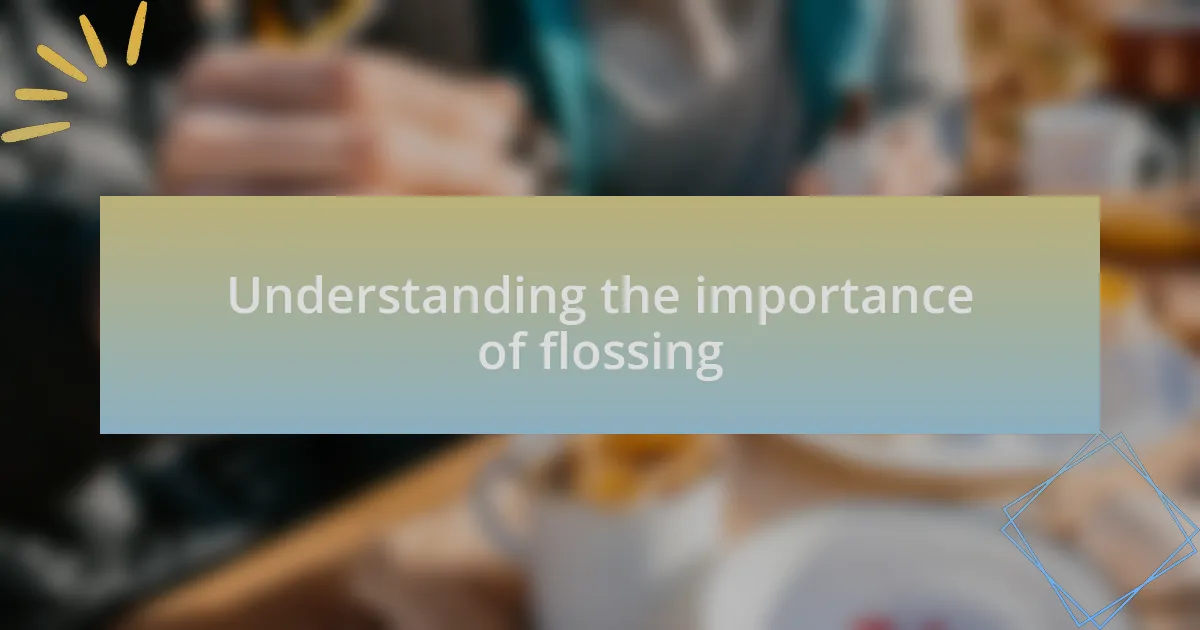
Understanding the importance of flossing
Flossing is often overlooked, but it’s crucial for maintaining oral health. I remember my dentist once explained that plaque can build up between teeth where a toothbrush simply can’t reach. Have you ever felt that pesky discomfort between your teeth? That’s often caused by plaque, which can lead to cavities and gum disease if not addressed.
When I finally committed to daily flossing, I was amazed at how much cleaner my mouth felt afterwards. Flossing removes food particles and reduces the risk of developing bad breath, which I hadn’t realized was tied to this simple habit. It’s interesting to think about how a small piece of string can make such a significant difference in not just your dental health, but also your confidence in your smile.
Moreover, the emotional impact of a healthy smile shouldn’t be underestimated. I once met someone who avoided smiling in photos due to concerns about their dental hygiene. As I shared my own transformation journey with flossing, they realized that taking that small step could lead to a newfound sense of freedom. Isn’t it empowering to think that a simple habit like flossing can help us feel more confident and open in our interactions with others?
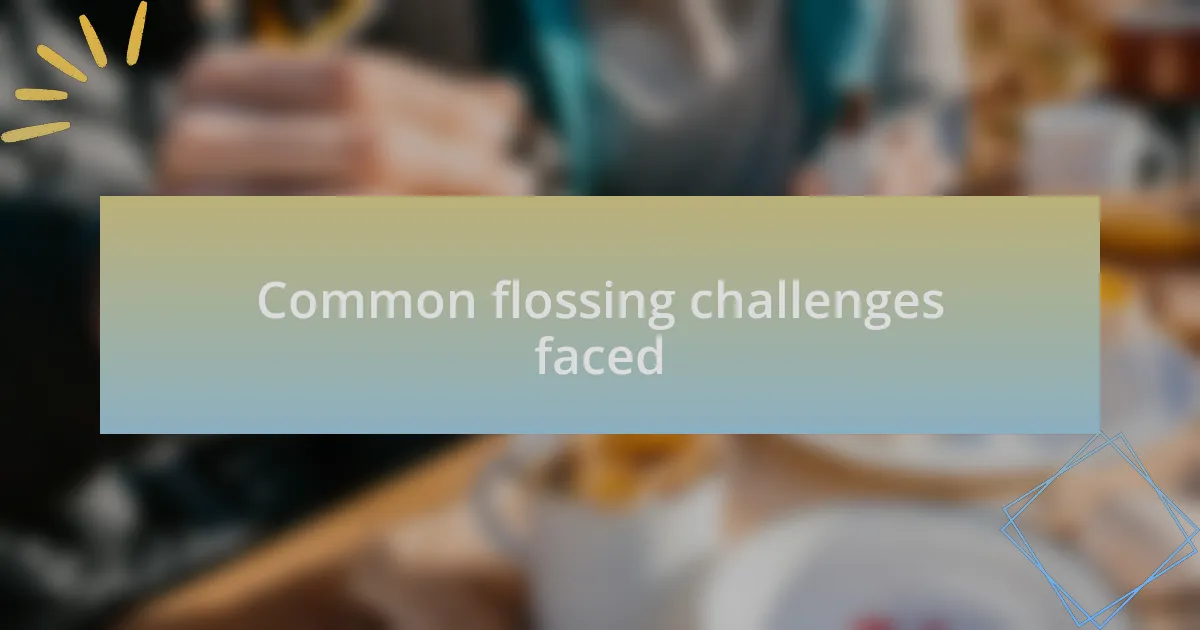
Common flossing challenges faced
One of the biggest hurdles I faced when starting to floss was the feeling of awkwardness. Initially, I struggled to find the right technique and often ended up fumbling with the floss. Have you ever felt that hesitation, where it seems easier to skip it altogether? I remember precisely that moment when I realized that practice truly makes perfect; once I established a rhythm, it became a much more manageable routine.
Another challenge is the discomfort that some people experience, especially if they’re not used to flossing regularly. I vividly recall the first week of my flossing journey—my gums were sore and even bled a little. It can be disheartening, but I learned that this often happens when you’re starting out. Have you been there too? Gently easing into it can make all the difference. Today, I understand that a little discomfort is just part of the process of building a healthier habit.
Finding the right type of floss can also be a bit overwhelming. There are so many options! I recall standing in the dental aisle, feeling like I needed a degree just to choose the right product. I eventually settled on waxed floss, which glided easily between my teeth. Have you found your favorite yet? I encourage you to experiment until you find what works best for you—your mouth deserves it.
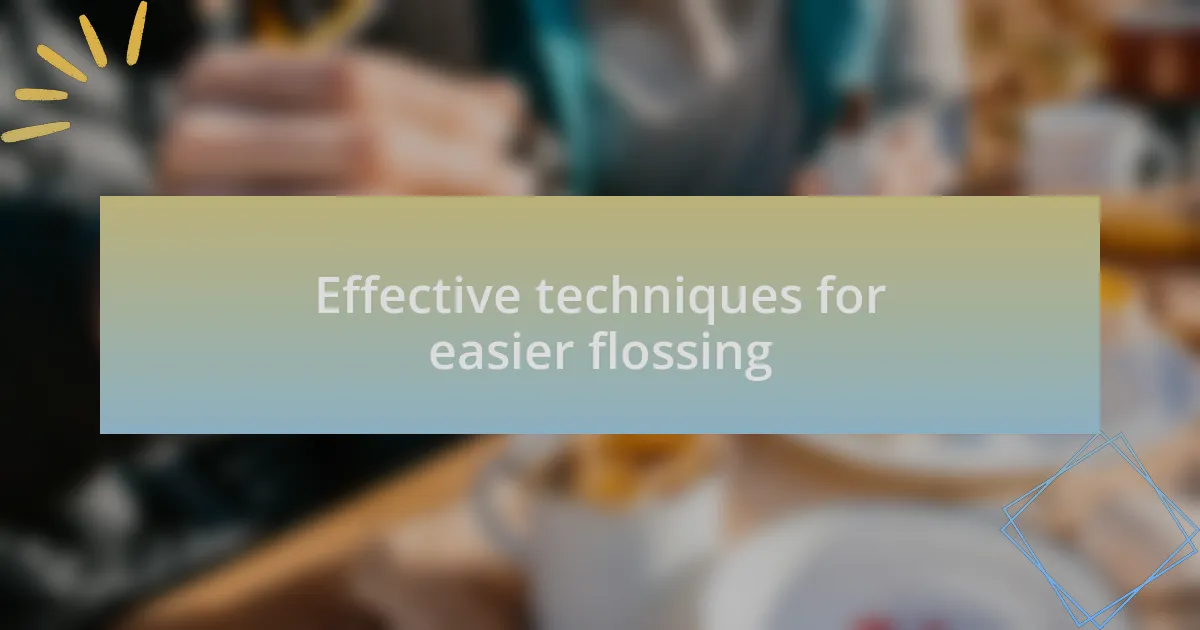
Effective techniques for easier flossing
When I decided to make flossing a regular habit, I discovered that using a floss holder drastically changed my experience. Instead of wrestling with the floss itself, having that extra grip allowed me to navigate between my teeth with ease. Have you ever thought about how a simple tool can shift an entire routine? I found that this little change not only made flossing less daunting but also more enjoyable.
Another technique that worked wonders for me was incorporating a specific time into my daily routine. I chose to floss right after brushing my teeth in the evening, when I felt a mix of satisfaction and commitment to my oral health. Do you have a routine that helps remind you to floss? By pairing it with an existing habit, it became harder to skip and easier to maintain.
Lastly, don’t underestimate the power of using flavored floss. I initially thought it was just a gimmick, but the minty taste made a huge difference for me. It turned a chore into a refreshing experience; have you noticed how taste can transform the way you perceive a task? Now, flossing isn’t just something I do—it’s something I look forward to as part of my oral care journey.
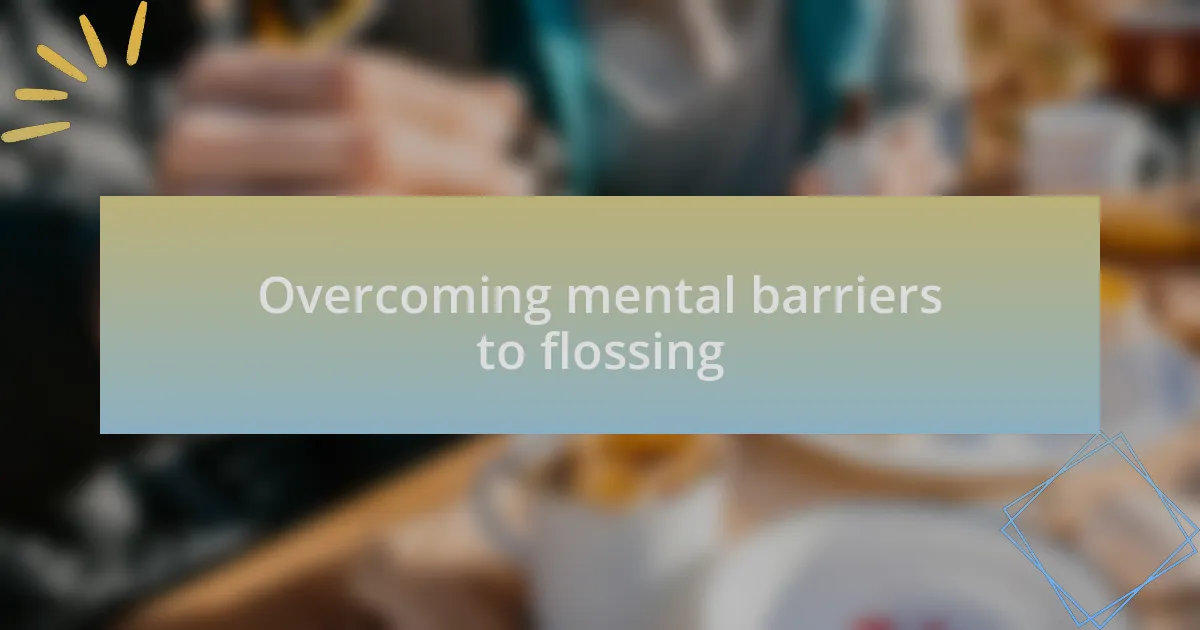
Overcoming mental barriers to flossing
When I first thought about flossing, I realized a significant mental barrier existed—fear of the discomfort and awkwardness it caused. It felt overwhelming, like trying to tackle a mountain of anxiety with a flimsy rope. I started reminding myself that every small step counts; have you ever considered how overcoming just one fear can lead to greater confidence in your dental care routine?
Initially, I struggled with the belief that flossing was time-consuming and tedious, a thought that often led me to skip it entirely. However, one day, I decided to set a timer for just two minutes, and you know what? It transformed my perception. Have you ever tried to break a task down into manageable bits? That little change made me see flossing not as a chore but as a quick moment of self-care, turning my perspective around completely.
Lastly, I found that sharing my flossing journey with a friend helped dismantle my mental barriers. Just having someone to talk about my struggles made a huge difference. Have you thought about how accountability might help you stick to a health habit? Knowing I wasn’t alone in this battle made it less intimidating and more of a shared experience, and that support nudged me toward consistency.
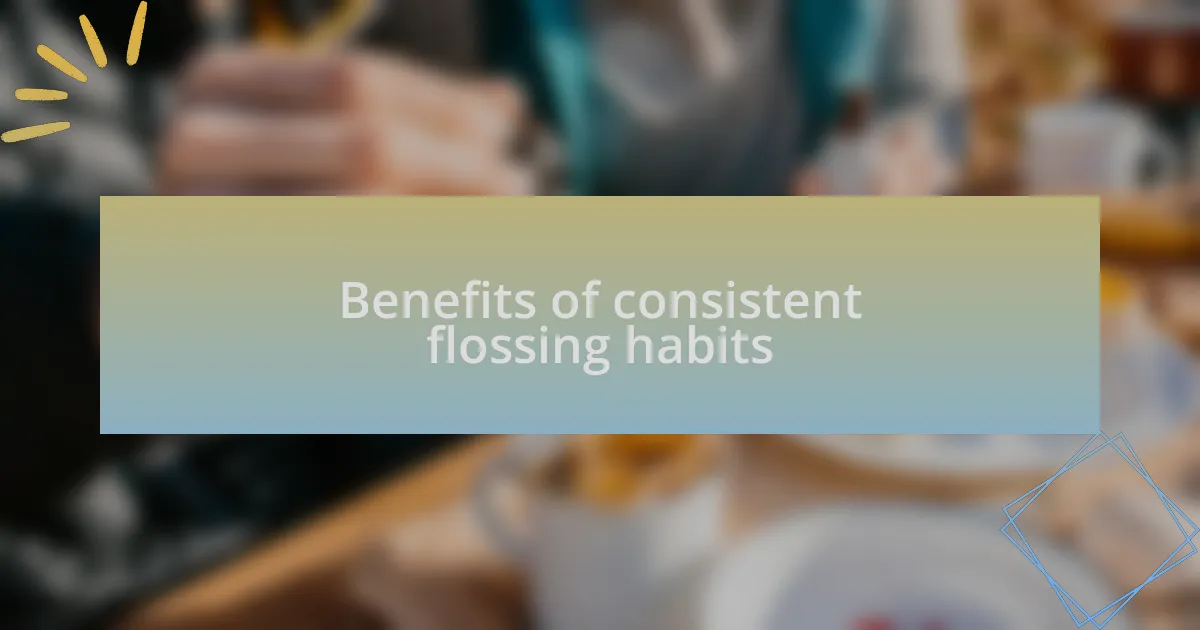
Benefits of consistent flossing habits
Flossing consistently brings several undeniable benefits, and I’ve personally experienced them firsthand. One of the most rewarding changes I noticed was a significant decrease in my gum sensitivity. Initially, I thought discomfort was just part of the deal, but as I made flossing a regular habit, my gums gradually felt healthier and less inflamed. Have you ever expected a chore to bring unexpected relief instead?
Another remarkable benefit is the boost in my confidence level. After sticking to a daily flossing routine, I regularly received compliments about my fresh breath. There’s something empowering about knowing I was taking proactive steps towards my dental health. Have you felt that rush when you realize you’re doing something positive for yourself?
Consistency in flossing has also sparked an overall interest in my oral care. It led me to explore other areas of my dental hygiene, such as experimenting with mouthwashes or trying different types of toothbrushes. This newfound curiosity made maintaining my dental routine enjoyable rather than burdensome. Doesn’t it feel great to turn a basic habit into a complete self-care journey?